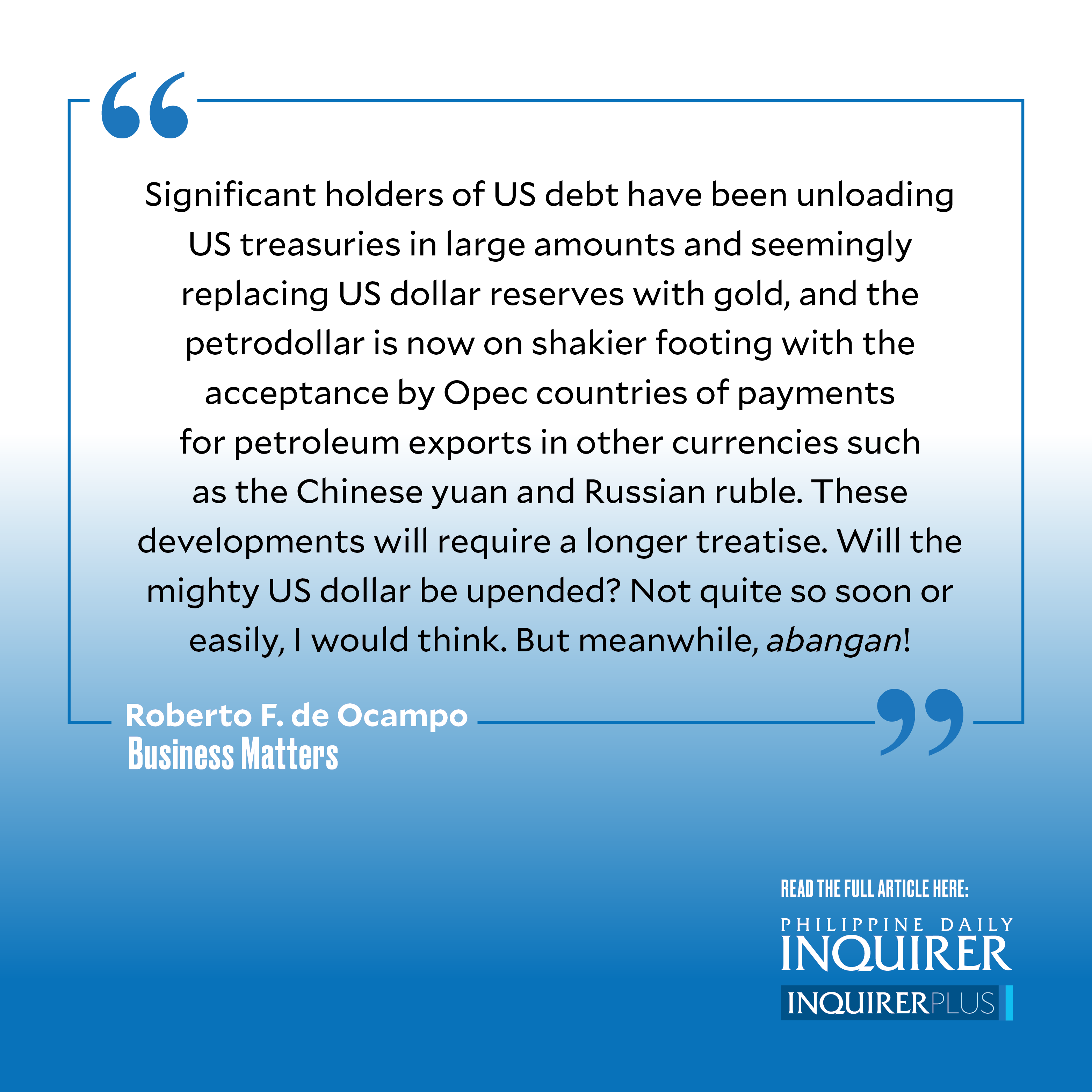‘Abangan!’

About a year ago, when I wrote a column entitled “Keynesean apocalypse” (3/12/22) that dwelt on the Russia-Ukraine war, which had just commenced and begun to develop as a proxy war between the United States/Nato and Russia, I ended thus: “We should pray hard that nuclear war is averted lest the famous comment of the great economist John Maynard Keynes that ‘in the long run, we are all dead’ transform from an economics reflection to an apocalyptic prophecy.”
Mercifully, a nuclear war has not transpired, but the escalating rhetoric from both sides of the confrontation, the continuous infusion and deployment of weaponry, and the apparent unwillingness of the major protagonists to even move one single step toward diplomacy and a peaceful resolution to the conflict only raise the fearsome probability of Armageddon being ignited deliberately or worse, otherwise.
Meanwhile, the absence of nuclear war notwithstanding, tectonic shifts in the global economic structure and the geopolitical balance of power have changed the world as we knew it to be just a year ago. These have occurred as a result of the developing outcomes of the two global battles—one military and the other economic and geopolitical—that are offshoots of the proxy war. These outcomes presently appear not to run in favor of our traditional allies, the West. Militarily, latest reports indicate a looming defeat for Ukraine, the West’s vow to help it with weapons and funds “as long as it takes“ notwithstanding. Economically, the West’s barrage of sanctions on Russia have appeared to backfire somewhat and its efforts to rally support for these, from the international community, have not completely borne the hoped for fruits and may have possibly, instead, planted the seeds of unintended consequences. That the sanctions backfired can be evidenced by the plummet of major European Union economies toward an unprecedented energy crisis with its resultant cascading effect on prices of just about everything, soaring inflation rates, and the prospect of a recession this year onward.
The sanctions have simultaneously made several countries of the so-called “Global South” (developing, emerging, and less developed countries) leery of a perceived weaponizing of the dollar as a hammer of Thor, as it were, to enforce and perpetuate what they believe to be the hegemonic control by primarily the US and the EU over the rest of the world. One unintended consequence is the now close alliance between Russia and China, and the expansion of the aggrupation of countries known as BRICS (Brazil, Russia, India, China, and South Africa), which appears to be promoting a multipolar (as opposed to the present unipolar US dominated) world order. Already a number of Latin America, African, and Middle Eastern countries are signaling their intention to join this group.
It can be observed that a complimentary unintended consequence is the evolving so-called “dedollarization” of the global financial structure. Since the end of World War II, when the US stood tall as the last surviving global economic power, the US dollar developed into the world’s main currency of international reserves and international payments. Among others, the US and major oil-producing countries agreed that payments for petroleum exports worldwide are to be made in US dollars, thus giving rise to the petrodollar, further enhancing the US dollars’ preeminence. The recent financial sanctions applied by the US, in the context of the Ukraine conflict to both its adversaries (to inflict “punishment”), and allies (for “friendly persuasion” toward aligning with the West) appear to have resulted in unprecedented moves among a number of countries toward becoming sanction proof by lessening dependence on the US dollar.
Significant holders of US debt have been unloading US treasuries in large amounts and seemingly replacing US dollar reserves with gold, and the petrodollar is now on shakier footing with the acceptance by Opec countries of payments for petroleum exports in other currencies such as the Chinese yuan and Russian ruble.
These developments will require a longer treatise. Will the mighty US dollar be upended? Not quite so soon or easily, I would think. But meanwhile, abangan!
——————–
Roberto F. de Ocampo, OBE, is a former finance secretary and was Finance Minister of the Year in 1995, 1996, and 1997.




















